Guides and White Papers
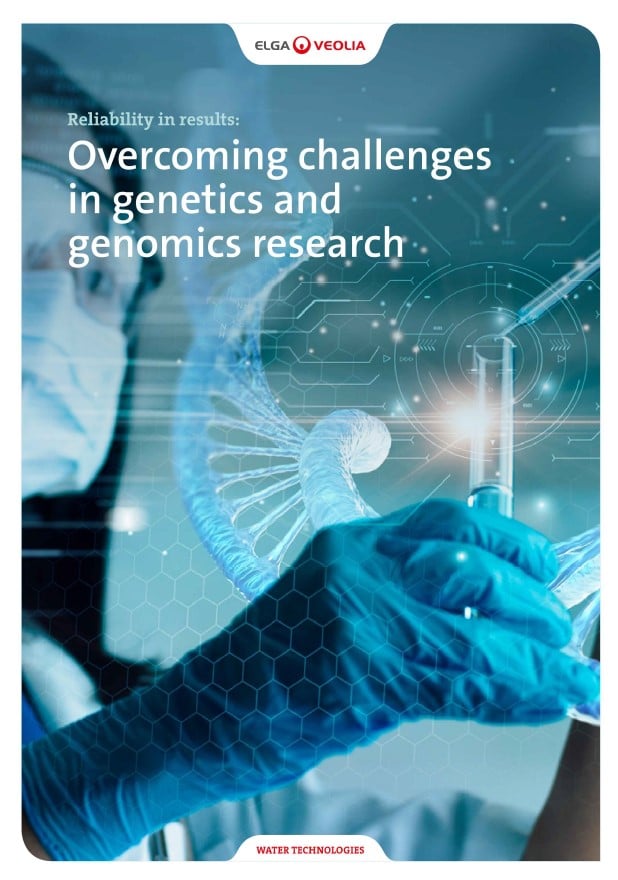
| White Paper: Overcoming Challenges in Genetics & Genomics ResearchRead this white paper to understand the importance of high-purity water in genetics and genomics research, and explore the challenges of accessing this commodity. |

| White Paper: Pure Water for Ultra-Trace PFAS DeterminationsIncreased awareness of the hazards associated with PFAS has led to an increased requirement for the analytical determination of PFAS at lower and lower levels. read this white paper to gain insight into PFAS, PFAS testing methodologies, water purification design considerations and required technologies for PFAS analysis. |
| White Paper: FDA 483s & Non-compliance in PharmaForm 483s are very important to FDA- regulated companies, regardless of how many, if any, they have received. A single 483 tells a company exactly which areas to improve - or to correct - to remain compliant (and therefore operational). Downplaying the 483 content and, more importantly, not responding seriously and completely to the observations can have costly consequences. |
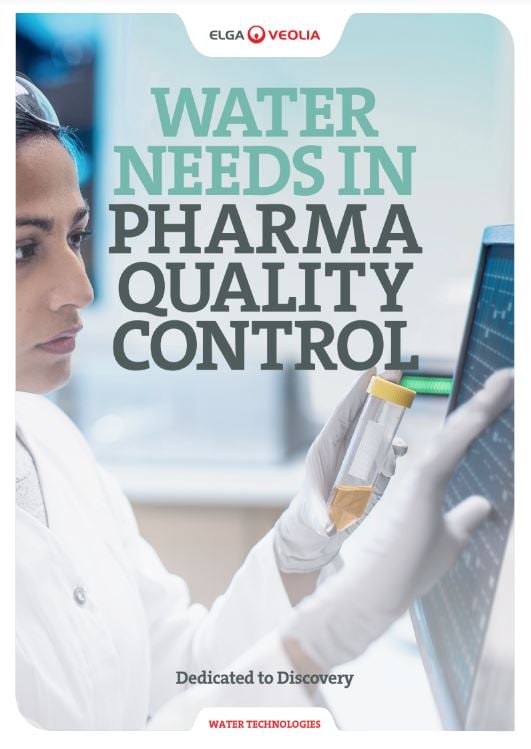
| White Paper: Water Needs in Pharma Quality ControlWater is one of the most widely used substances in the pharmaceutical industry. It functions as an ingredient, a cleaning agent, a reagent, a solvent and a product, throughout the drug discovery process, from the initial identification of potential drug targets, all the way to the manufacture and quality control of the final product. |
| White Paper: Which Level of Biosafe Lab do you Need?Understanding the principles of biosafety is key to minimizing the chance of laboratory-associated infections and contamination of the environment. |
| White Paper: Ultrapure Water for Trace Element DeterminationAccurate analysis of samples for ever lower concentrations of contaminants is becoming more important as the impact of trace quantities of inorganic ions on the environment, health and high-tech applications becomes more apparent. |
| White Paper: The Role of Pure Water when Studying Endocrine Disruptors & PhthalatesEndocrine disrupting compounds (EDCs) affect the endocrine system by imitating or interfering with the body’s hormones. The health effects of EDCs are wide ranging and vary from problems with cognitive development and the triggering of cancer to physical developmental complications. Even very low levels can induce chronic effects, making their toxicological assessment particularly difficult. |
| White Paper: Optimizing Water for Life Sciences ApplicationsLife science applications face an abundance of challenges in an effort to deliver high quality, reproducible results. Limited resources, a shortage of bench space, restricted instrument availability and equipment downtime are just some of the factors that can reduce workflow efficiency and cause delays. |
| White Paper: Determination of Volatile Organic CompoundsVolatile organic compounds are chemical compounds, often man-made, that can be found in a wide variety of substances such as solvents, paints and industrial chemicals. They have a high vapor pressure and readily evaporate at room temperature so are present in the atmosphere and, when used inappropriately, can pose concerns for indoor air quality. |
| White Paper: 5 Steps to a BioSafe LabHigh-level biosafety laboratories are essential for public health, scientific research, and national biosecurity. This paper takes you through some of the key criteria to consider when designing, building and using biosafety laboratories at different levels, whether starting from scratch, or retrofitting your lab to be at a higher biosafety level than currently. |
| White Paper: Protecting Clinical Output from Water RisksWhen lives are at stake, there is no margin for error. Your clinical analyser must receive a constant and reliable supply of CLRW* water, regardless of the quality of the feedwater available. Compliant CLRW resistivity of > 10 MΩ-cm restricts the concentration of ionic impurities to ppb levels or less, which is assisted by the removal of carbon dioxide. |
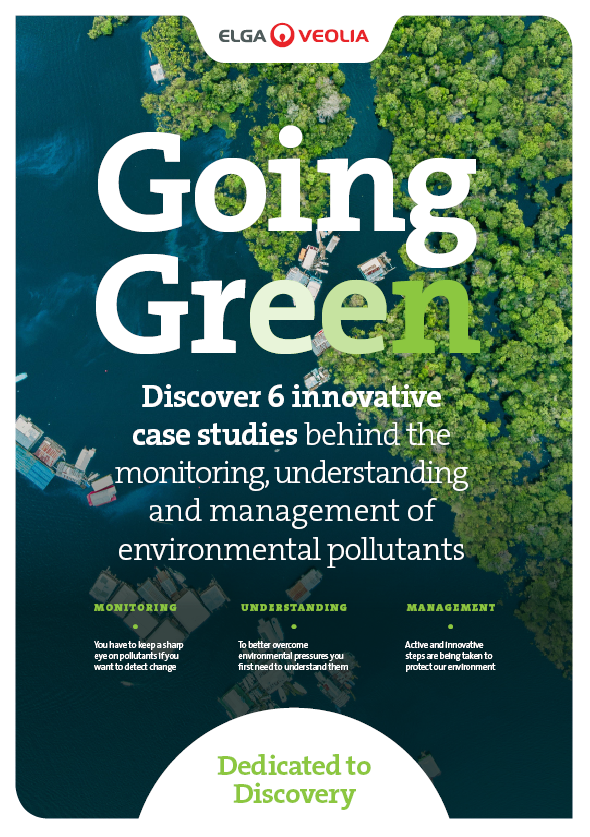
| Going Green: 6 Case Studies in 1 White PaperIn our Going Green Whitepaper, we discuss the effects of environmental water pollution, including how sources of water contaminants can be monitored, understood and managed, illustrated with a number of case studies. All this environmental research relied on the availability of ultrapure lab water. |
White Paper: HPLC in Pharmaceutical AnalysisThis white paper highlights the challenges and solutions associated with ensuring that the correct level of water purity is used end-to-end in pharmaceutical manufacture and analysis, including how to obtain the high quality HPLC results that are critical to this process. | |
White Paper: Reducing risk in HPLC / LC-MS Therapeutic Drug Treatment and MonitoringThis paper will help you to better understand the role of ultrapure water for applications of HPLC in clinical diagnostics, particularly for therapeutic drug monitoring of immunosuppressant drugs. | |
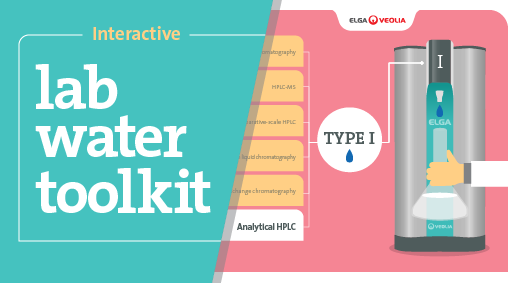 |
|
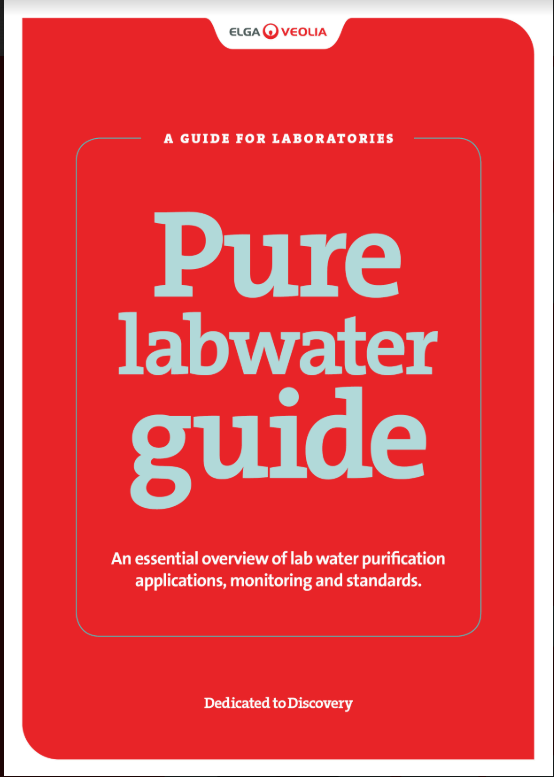
| Pure Water GuideOur extensive pure water guide has all the information you need to accurately and reliably choose the right pure water specification for your lab experiments. |
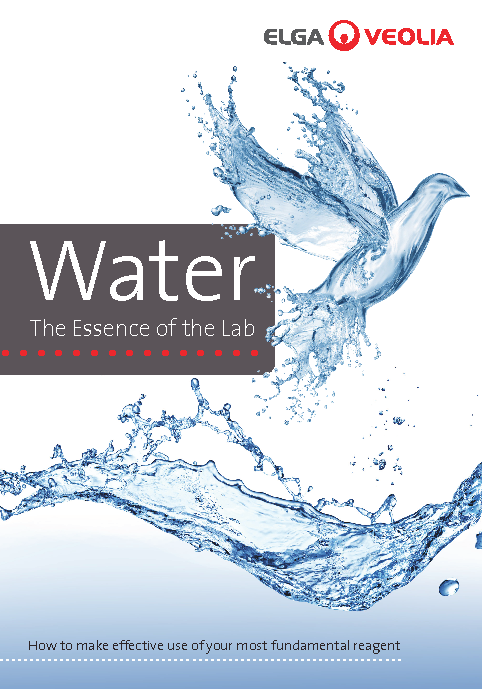
| White Paper: Essence of the LabRead our white paper and discover how you can make sure that your water supply delivers the performance you need to produce reliable and accurate results. |
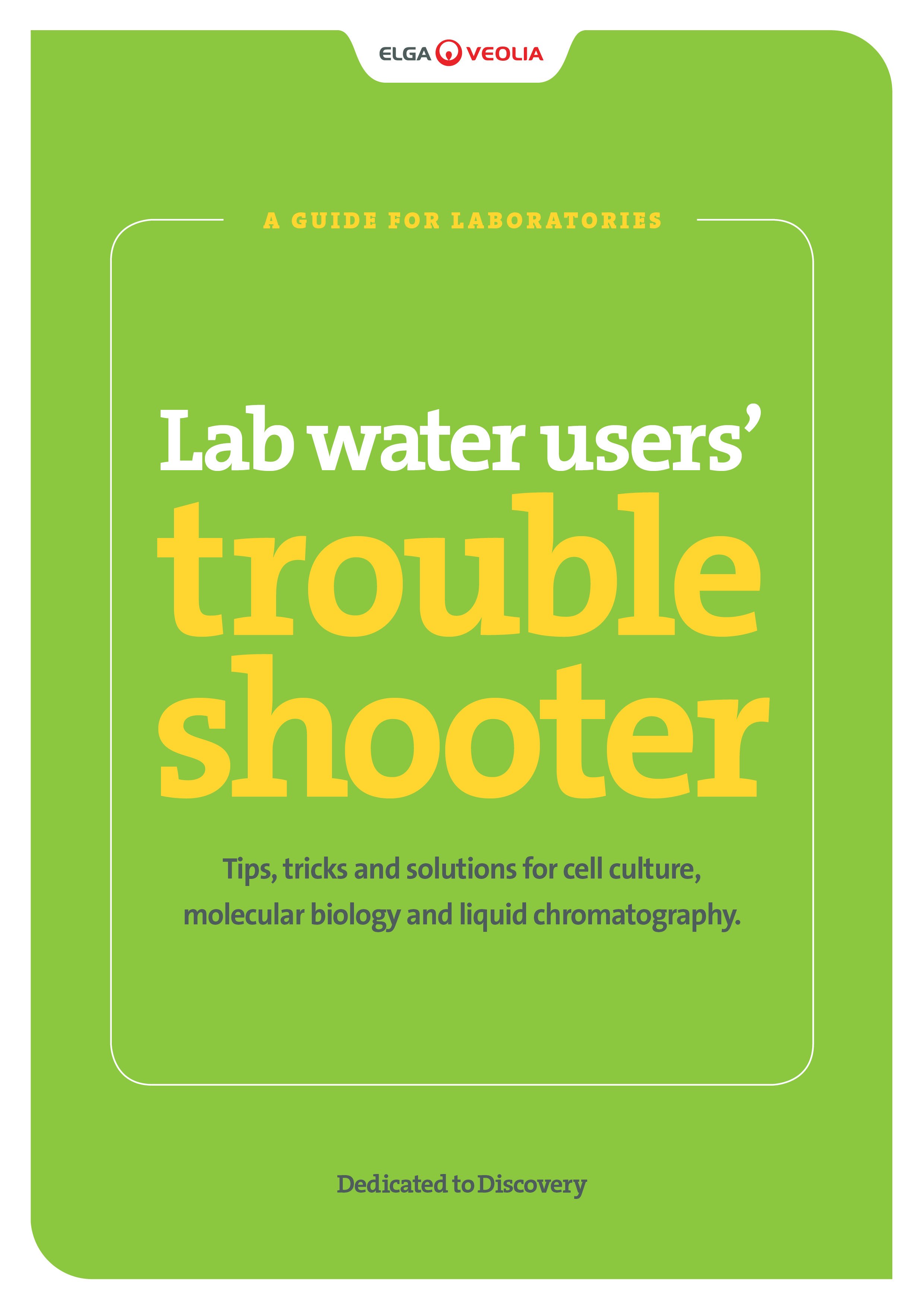
| White Paper: Tips, tricks, and Solutions for Cell Culture, Molecular Biology and Liquid Chromatography ApplicationsA guide to troubleshooting water problems |
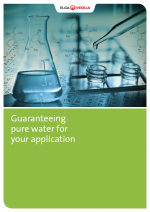
| Guaranteeing Ultrapure Water for Your Laboratory ApplicationDiscover How To Guarantee Your Ultrapure Water Supply In Your Lab |
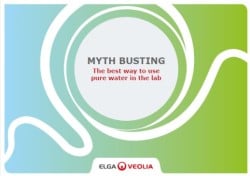
| Myth Buster - The Best Way to use Pure Water in the LabEver stopped to think about the best way to use pure water in the lab? Well now you don’t have to - simply read through our whitepaper where we have busted the myths around buying water purification systems. |

| Whitepaper: Solutions Behind Great ScienceWith an ever-increasing requirement to improve healthcare, inform government policy and protect the environment, modern research needs to keep pushing the boundaries and the limits of analytical detection |
